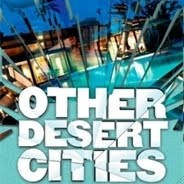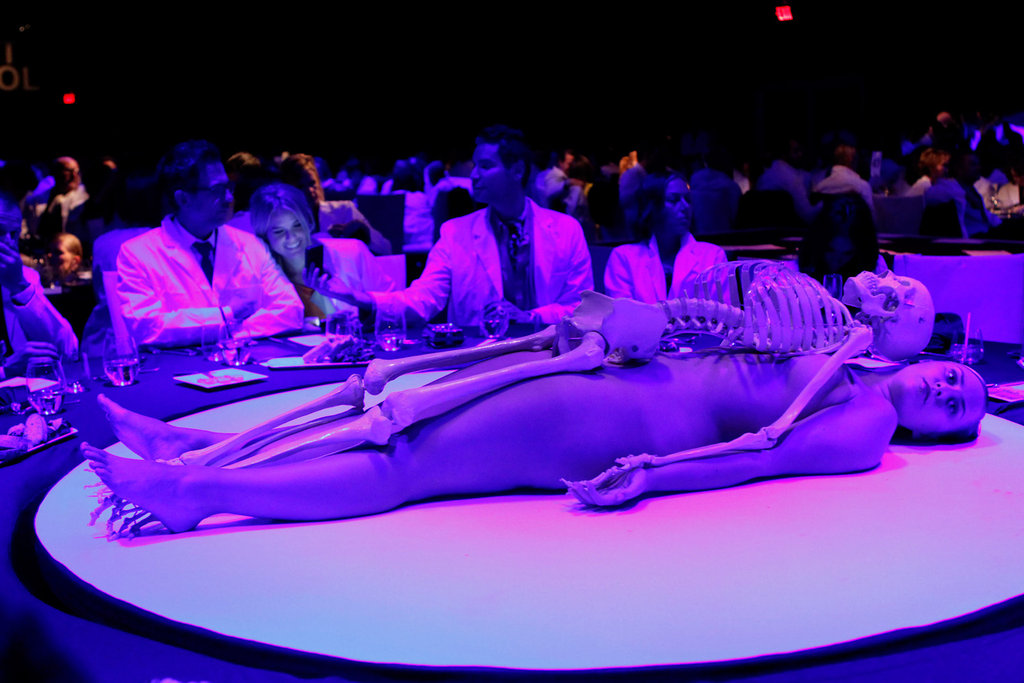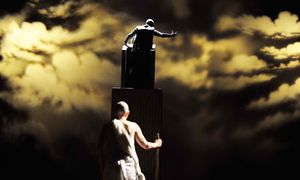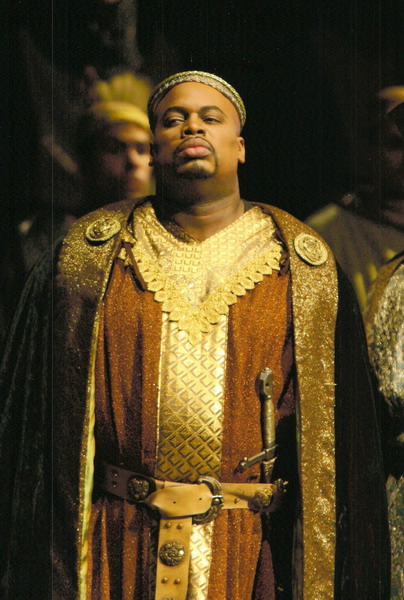 Though my Thanksgiving break was altogether much too short, I am blessed to have been able to see some incredible theatre over the few days I had. One of the best things about being in this program is that I have acquired a theatrical capacity for much more than the commercial. Being encouraged to see smaller, artistically driven and intellectually founded works has broadened my own taste palate and my desire investigate daring theatre companies. However, that being said, I still love Broadway.
Though my Thanksgiving break was altogether much too short, I am blessed to have been able to see some incredible theatre over the few days I had. One of the best things about being in this program is that I have acquired a theatrical capacity for much more than the commercial. Being encouraged to see smaller, artistically driven and intellectually founded works has broadened my own taste palate and my desire investigate daring theatre companies. However, that being said, I still love Broadway.
As Chloe wrote, she and I got to see Jon Robin Baitz’ Other Desert Cities last Wednesday night. We got student tickets, which we should all take advantage of as long as we live (considering BU IDs do not have graduation years on them), and sat in the Orchestra of the Booth Theatre for thirty dollars. Amazing. It was the first time I think I’d seen a play asking me to totally empathize with a rich, white, conservative, Republican family. All hell breaks loose at the Wyeth house when their daughter (played by Rachel Griffiths) comes home for Christmas with her soon-to-be-published manuscript containing some of the family’s deepest secrets. Linked above you’ll find the Times review, but I thought I’d share some of my own thoughts on the production as well.
More and more I realize that the success of a family sitting room drama is largely dependent upon the strength of the actors on stage. In Joe Mantello’s production of Other Desert Cities, the performances were strong enough to keep the integrity of the play, but not strong enough to move me. I found myself wishing that I could have read the play before seeing it, because the words outshone the actors. The actors were putting something on the words that I would never be able to forget or take back. That is not to say that this was a bad production, it was well directed and the performances of Thomas Sadoski and Judith Light were well worth the endeavor. It just made me realize how important first encounters with a play are.
Early in high school I saw an absolutely atrocious, horrendous, heinous, horrific production of Antigone. I had not read Antigone previously, and from that point forward I thought I would hate that play for the rest of my life. Having never read the words, my entire experience with that play was based off of the one encounter I had with this production. When we did thorough dramaturgical readings of Antigone for our projects this semester, it was as though I were seeing it for the first time. Though I still have that god-awful production seared in my memory, it can’t ruin the play for me anymore.
I want to read Baitz’ play, not because I think it’s better than Mantello’s production gives it credit for, but because I think it would enhance my understanding of the piece. This is the first time in my life where I think plays are as equally meant to be read as they are seen. Not one or the other. Not literary or visual, but both. All persons of the theatre should both see and read the works we invest our time and money in. They are two parts of a whole experience. I hope that I can get my hands on this script pretty soon, and perhaps share more evolved thoughts on this theory when I do.
 I am currently enrolled in a Production Management course where we have to create our own theatre company and then develop our season. So developing, developing, developing, thinking about the many shows I want to include in my season, thinking about the budget, about the set, costumes, props, staff, lights, and fog machines. In the beginning, I decided that I wanted my theatre space to mirror that of a theatre venue in cleveland, Cain Park. Cain Park’s main stage is a huge amphitheater which is a space I really really enjoy, but as I looked back at my mission statement, the description of my theatre, and the vision for Recess Theatre Company’s theatre space, I realized that I wasn’t in love with any of them, they had become stale and personally irrelevant. My idea didn’t fascinate me anymore and it wasn’t the type of theater I really would have wanted to create years down the road. So I began thinking again about what else was important to me in the world and how I could possibly incorporate that with my theater company. It struck me. I don’t remember how or why, but I shouldn’t have thought of it weeks ago. An sustainable theatre company. I realized that that was the kind of theater that I wanted, the one that would inspire me and challenge me. I thought the idea might be farfetched, so I started to do some research on it and I found so much information about green theatre projects and how to become a green theatre. One of the most interesting websites I found included this list about
I am currently enrolled in a Production Management course where we have to create our own theatre company and then develop our season. So developing, developing, developing, thinking about the many shows I want to include in my season, thinking about the budget, about the set, costumes, props, staff, lights, and fog machines. In the beginning, I decided that I wanted my theatre space to mirror that of a theatre venue in cleveland, Cain Park. Cain Park’s main stage is a huge amphitheater which is a space I really really enjoy, but as I looked back at my mission statement, the description of my theatre, and the vision for Recess Theatre Company’s theatre space, I realized that I wasn’t in love with any of them, they had become stale and personally irrelevant. My idea didn’t fascinate me anymore and it wasn’t the type of theater I really would have wanted to create years down the road. So I began thinking again about what else was important to me in the world and how I could possibly incorporate that with my theater company. It struck me. I don’t remember how or why, but I shouldn’t have thought of it weeks ago. An sustainable theatre company. I realized that that was the kind of theater that I wanted, the one that would inspire me and challenge me. I thought the idea might be farfetched, so I started to do some research on it and I found so much information about green theatre projects and how to become a green theatre. One of the most interesting websites I found included this list about 


